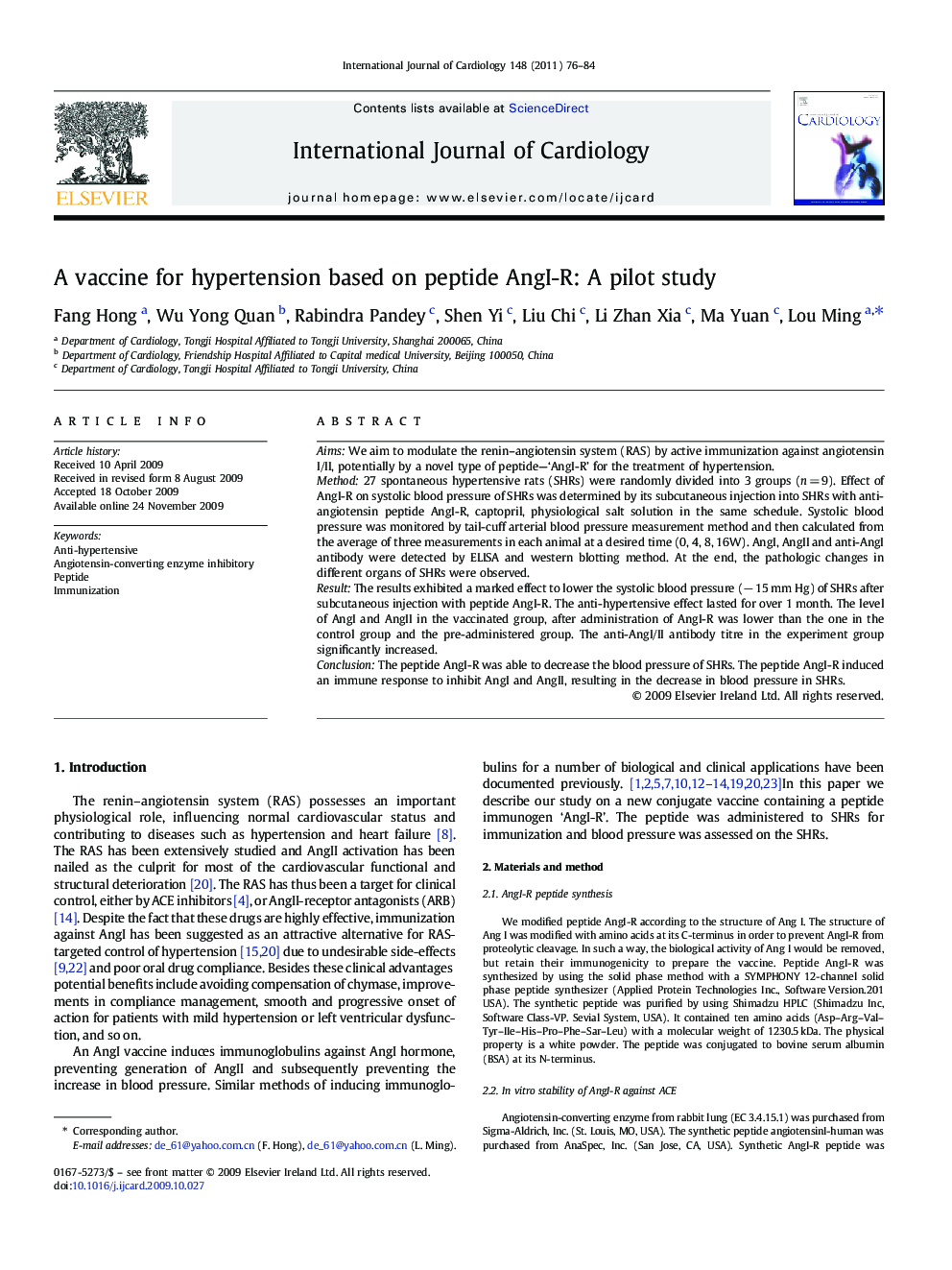| Article ID | Journal | Published Year | Pages | File Type |
|---|---|---|---|---|
| 2930507 | International Journal of Cardiology | 2011 | 9 Pages |
AimsWe aim to modulate the renin–angiotensin system (RAS) by active immunization against angiotensin I/II, potentially by a novel type of peptide—‘AngI-R’ for the treatment of hypertension.Method27 spontaneous hypertensive rats (SHRs) were randomly divided into 3 groups (n = 9). Effect of AngI-R on systolic blood pressure of SHRs was determined by its subcutaneous injection into SHRs with anti-angiotensin peptide AngI-R, captopril, physiological salt solution in the same schedule. Systolic blood pressure was monitored by tail-cuff arterial blood pressure measurement method and then calculated from the average of three measurements in each animal at a desired time (0, 4, 8, 16W). AngI, AngII and anti-AngI antibody were detected by ELISA and western blotting method. At the end, the pathologic changes in different organs of SHRs were observed.ResultThe results exhibited a marked effect to lower the systolic blood pressure (− 15 mm Hg) of SHRs after subcutaneous injection with peptide AngI-R. The anti-hypertensive effect lasted for over 1 month. The level of AngI and AngII in the vaccinated group, after administration of AngI-R was lower than the one in the control group and the pre-administered group. The anti-AngI/II antibody titre in the experiment group significantly increased.ConclusionThe peptide AngI-R was able to decrease the blood pressure of SHRs. The peptide AngI-R induced an immune response to inhibit AngI and AngII, resulting in the decrease in blood pressure in SHRs.
